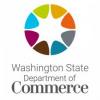Marginalized populations are those excluded from mainstream social, economic, educational, and/or cultural life. Examples of marginalized populations include, but are not limited to, groups excluded due to race, gender identity, sexual orientation, age, physical ability, language, and/or immigration status.
(August 19, 2022)






